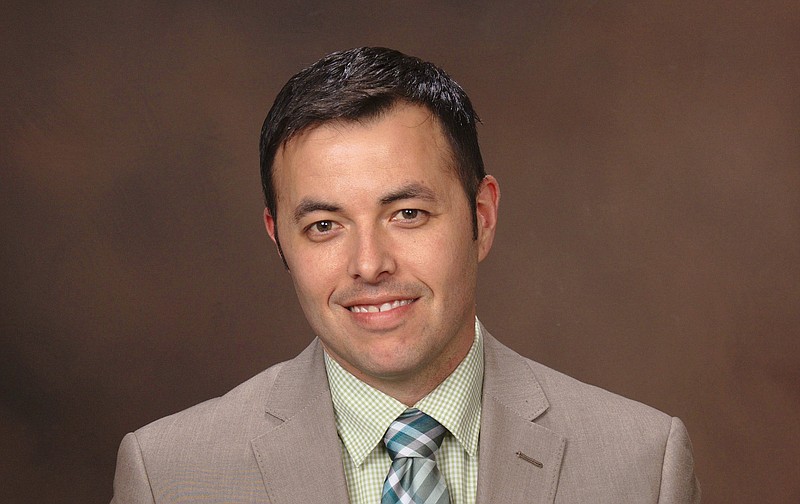Federal financial support for small businesses in Arkansas shifted last year as lenders moved to deliver more dollars under traditional guaranteed products from the U.S. Small Business Administration.
SBA lending in the state "reflected lenders' uncertainty in fiscal year 2021," the agency announced in a news release. However, banks and other lenders that participate in SBA programs delivered a 64% increase in guaranteed loan programs for the fiscal year ending Sept. 30.
Overall, SBA lenders delivered 330 loans valued at $208.9 million to Arkansas' small businesses under the agency's traditional guaranteed programs. Specialty lending products, such as forgivable loans under the Paycheck Protection Program, have dominated federal lending since the pandemic began in March 2020. The Paycheck Protection Program effort ended in May.
"The SBA continues to make significant headway in helping small businesses access much-needed capital in FY21, but much more work remains to be done," Edward Haddock, district director for the Arkansas office, said Wednesday. "Both our direct loans and guaranteed loans supported thousands of jobs across Arkansas, providing essential capital to businesses impacted by covid and those starting up or expanding."
The agency's 7a program, its most-common lending vehicle, was the most popular traditional alternative for Arkansas borrowers. Though the number of loans slightly increased by 10, the dollar volume was up 81% to about $201 million from fiscal 2020.
Southern Bancorp Inc., which focuses on underserved and underbanked communities in Arkansas and Mississippi, was a leading 7a lender, delivering $21.4 million to small businesses in Arkansas.
"Though the pandemic impacted nearly every corner of the country to one extent or another, the impact was especially hard felt in many of Southern Bancorp's target markets because the virus exacerbated existing economic hardships," Darrin Williams, Southern Bancorp's chief executive officer, said Wednesday.
The SBA said 7a loans were more popular last year because the agency added incentives that included elimination of borrower origination fees and ongoing servicing fees. The 7a program provides short- and long-term working capital, allows for refinancing of existing debt and can be used to purchase furniture, fixtures and supplies. Loans are capped at $5 million. More than 3,800 jobs were supported or created through the program in the fiscal year, the agency said.
The enhanced incentives along with Southern Bancorp's knowledge of the 7a program allowed the lender "to quickly deploy funds to small businesses who were not only trying to launch their business but also keep their doors open," Williams said. "We look forward to continuing to work with the SBA to utilize this and other programs to continue increasing access to capital in financially underserved communities."
In total, 25 in-state lenders and 51 institutions from outside Arkansas made 7a loans in the state. That disparity, SBA said in the news release, indicates "Arkansas has room to grow its small business lending and must compete to keep its lending in local institutions."
Statistics from the agency showed that lending in underserved communities gained traction last year, rising to about 15.4% of total 7a loans compared with 6.5% in fiscal year 2020.
SBA's 504 loan program also picked up last year, topping $31.4 million in debenture financing -- up 97% from 2020. The program provides long-term, fixed-rate financing for major fixed assets that promote business expansion and job growth.
Microlending, however, dipped last year and signals the gap in access to small- dollar loans is widening, the agency said. Only 22 loans valued at $528,623 were approved in Arkansas. That was down from more than $2 million in total loan value two years ago. Microloans are capped at $50,000 and target start-ups and non-profit childcare centers. The average microloan in the state is $23,000.
Though the fiscal year is closed, SBA is still making funds available through its covid economic injury disaster loan program, which has provided $1.4 billion in Arkansas so far this year. The program closes Dec. 31.
Arkansas officials are promoting the loans to help small businesses battle the ongoing pandemic. "These EIDL loans are instrumental in helping our small businesses float costs and remain open as they look bring revenues back to pre-covid levels," Haddock said.
Looking ahead to fiscal year 2022, Haddock said the agency will continue to promote the specialty covid loans as a defense against the pandemic.
"During uncertain economic times, the SBA guaranty has proven not only to reduce risk to the lending institution but provide stability and flexibility to small businesses as well," he added.
Outside of the traditional core lending programs, Arkansas and national lenders made 61,701 Paycheck Protection Program loans to small businesses in the state. The second round of PPP funding reached $1.75 billion in 2021.
